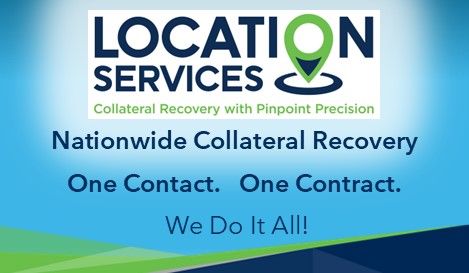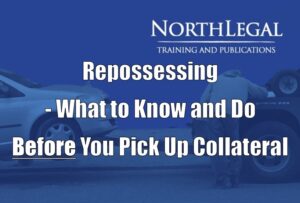To shield his child from the impact of some hurtful words shouted at the playground, the father offers the same advice that he was given as a child: “Sticks and stones may break your bones, but words can never hurt you.” However well intended, this is a very deceiving statement, because words do have power over us and can elicit any number of emotions from a human being. A Professional Skip-Tracer knows that words and their timing can have a profound effect on their own success or failure.
In previous postings I have discussed the two types of questions: Open Ended and Closed Ended. Understanding the concept of effectively framing your questions is the first step in holding a good interview, but you must also know when to ask what type of question, and when to sit back and simply listen.
One common mistake an eager new skip-tracer makes is failing to control his/her own attitude. They come out of the gate with a bull-headed approach fueled by the righteous conviction that the skip owes them MONEY! Please remember that your task is to locate your prey; not to collect the money, secure the collateral or apprehend the fugitive. So take the enforcer hat off before you start your investigation to avoid ending a conversation before it has begun.
When talking to friends, family, neighbors, co-workers, or past employers you want to hold a conversation, not an interrogation. The longer you keep the person on the phone, or face-to-face, the better chance you have of gaining useful information. Remember that people like to talk. We can become the enemy of the conversation simply by the attitude we have, the way we speak to the subject, or the questions we ask. We cripple our own progress when we turn a simple conversation into an altercation.
I want you to consider a few simple power words that you can start using to help in your next investigation, but I recommend that you master the meaning of each of these words and how their intent can change depending on your voice inflection, tone and where the words are used in the sentence.
A great example is taken from the collateral recovery industry (where this writer has spent most of his life.) A common term used in the field is “voluntary repo”. The truth of the matter is that there really is no such thing, unless the collateral is dropped off at the doorstep of the local dealership with the keys provided, but that is an entirely different article for another day.
When I was training new collectors, an exasperated car-owner would say, “Well why don’t you just come and get the car, boy?!”, and then hang up. The neophyte, utterly failing to grasp the obvious, would pick up the phone and call the local professional in the area and tell them that they had a voluntary pickup. “OH WAIT a minute…”, I would say, and step in and explain to the collector and the professional what had really just happened during the call. The subject was just laying out a dare!
So let’s take a closer look at some power words and what they can really mean:
1: No.
It is the most powerful word in any language, and it is among the first words that we humans comprehend or understand, since we begin hearing it almost at birth. It is also a word most people fear the most: nothing is worse than rejection. Yet to a professional skip-tracer, the word “NO” is simply an opportunity for someone else to say yes. The great Zig Ziglar (RIP) said that the sales process BEGINS with the word ‘No’. The same rule applies to skip-tracing.
2. Why?
Anyone with a child has heard this word at least a million times by the time the child becomes a teenager. This simple one word can befuddle, confuse or even clarify. When asked enough times, it can lead to so much frustration that the subject will simply offer information just to end the conversation.
3. Help:
This is a favorite word of mine. It is a human trait for us to want to help our fellow man. Simply asking for help, rather than demanding help, can turn a foe into an ally.
4. Really?:
This word, just like each of the examples above, can change the flow of a conversation depending on the tone with which it delivered. For example: “I have no clue where he is.” You say, “Really?” Uttered with just the right tone of suspicion and gentle prodding, it challenges the statement and the validity of the person making it. The unsettling challenge effectively demands a response from the interviewee. Here’s another example to demonstrate the range of meanings that can be derived through a single word: “Honey, I’m going out with the guys to go club hopping.” With her response, “Really?” the spouse delivers her unspoken judgment in much the same way that a flame is delivered to the wick of a bundle of fresh dynamite. (Read: “Have you lost your mind? Fine, you just go ahead and see what happens.”)
5. Hmmm…
Consider the feeling you experience after the doctor reads your test results and simply utters an annoyingly inscrutable “Hmmmmm!” You just can’t help yourself and have to jump in and start the conversation with, “What did that mean?” He never actually said a word, but he got you talking nonetheless. Some of you may remember the TV show, Home Improvement, with the star of the show, Tim Allen, having the ability to express every human emotion with just a grunt. In much the same way, you can express volumes and summon responses by controlling your tone and timing. Get your subject asking you questions and follow up with one of these simple power words in the samples I’ve provided. With the right tone and some well-timed delivery, you will be shocked at the amount of useful information that flows.
A quick hint to end the day:
Always start a conversation off with a few questions you already know the answer to. This allows you to gage the truthfulness of the subject being interviewed. You can determine how long they pause before answering, their demeanor, facial expressions, body stance and overall mood. Then when you get to the questions you really need answered, you have established a baseline and can tell if something is amiss to be able to dig in kind of like a human lie detector.
Until Next Time… Follow me on the path to better skip-tracing
Alex….
Alex Price
Master Hunter
Alex Price is a nationally-recognized expert on the Art of Skip Tracing and author of Skip Tracers National Certification Program with over 25+ years of experience in skip-tracing, collections and public speaking. Alex began his career with Barnett Bank as a field representative collecting past-due accounts. He then moved to World Omni Finance, where over the next ten years he worked in all aspects of collections and handling the nationwide charge-off skip portfolio.
Contact Info: alex.price@masterfiles.com , Office: (972) 735-2353, Fax: (972) 735-2354













Facebook Comments